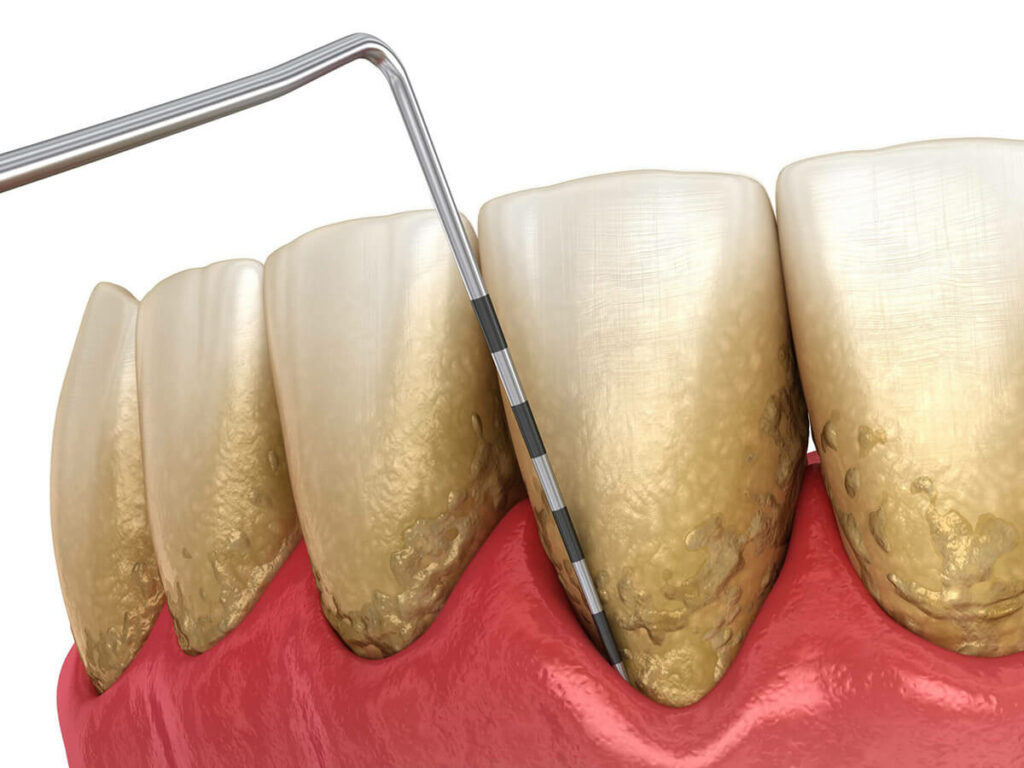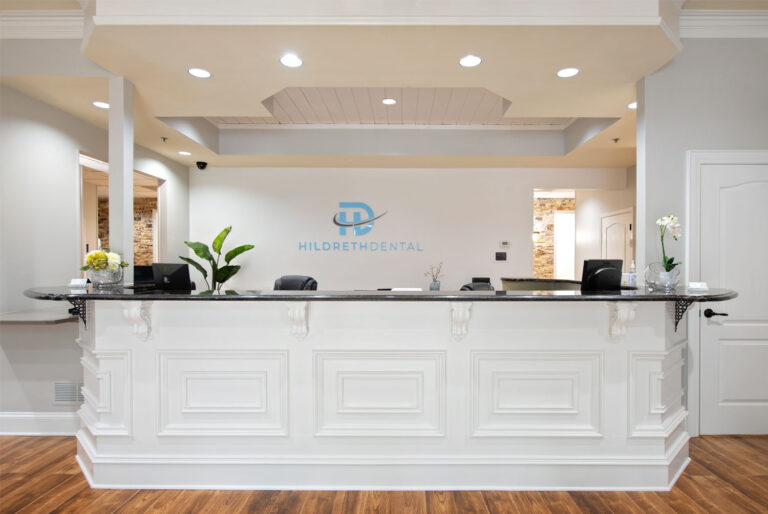Periodontal Disease Treatment (Gum Disease)
Hildreth Dental provides periodontal services for all stages of gum disease to restore your oral health. Gum disease is a serious condition that can affect anyone.
Your Gum Disease Treatment Dentist
Our team prioritizes prompt treatment of gum infections to prevent them from escalating into more severe problems. You can trust us to take care of any gum issues we notice right away:
- We often use a treatment called scaling and root planing, which is a two-step deep cleaning procedure. First, we remove tartar buildup on the roots of your teeth that are situated below your gum line. Then, we will smooth the surface of the tooth roots to aid in reattaching the tooth to the gums.
- In addition, we may prescribe antibiotics to eliminate any remaining bacteria.
If the thought of undergoing treatment makes you anxious, we offer dental sedation to ensure you feel relaxed and comfortable throughout the procedure.
You don’t have to wait until you experience the telltale signs of early-stage gum disease (gingivitis) to seek treatment. Instead, be proactive and schedule a routine gum disease exam at Hildreth Dental.

-
What are the signs of periodontal disease or gum dissease?
Periodontal disease, or gum disease, can be identified by the early signs of an irritated gum line that may bleed or cause discomfort when brushing, flossing, or having your teeth cleaned professionally. If left untreated, the gums can start to recede and pull away from the teeth, resulting in periodontal pockets that can be filled with harmful bacteria. Your dentist will measure the depths of these pockets to determine the extent of the condition and recommend the necessary treatment. In severe cases, gum disease can spread to the jawbone and connective tissues of teeth, causing the jawbone to deteriorate and ultimately leading to tooth loss.
-
What causes gum disease?
Everyone should be aware of the three leading causes of gum disease.
- The first and most common of these is chronic periodontitis. This type of gum disease happens when bacteria accumulate beneath the gum line due to poor oral hygiene habits. Over time, this bacteria hardens into a substance called tartar, which can’t be removed by simply brushing and flossing. Professional cleaning is necessary to remove it. The gums become inflamed and damaged if left untreated, leading to bone loss.
- The second cause of gum disease is aggressive periodontitis. This is a genetic condition that affects a small number of families. It progresses quickly and can even occur in children.
- The last and rarest cause of gum disease is necrotizing periodontal disease. This type of gum disease affects people with immune issues or chronic illnesses. It happens when there is a lack of blood flow to the soft tissue and bone, causing them to break down.
-
How is periodontal disease or gum disease treated?
Periodontal disease, also known as gum disease, can be treated in two ways, depending on the severity of the condition. Scaling and root planing are considered the standard treatment for periodontitis, and it is highly effective in managing the condition in its early to moderate stages. The procedure involves removing harmful accumulations of plaque, tartar, and oral bacteria from below the gum line and between the teeth, then smoothing out the root surfaces to prevent future accumulations. This helps the gums to heal and reattach themselves to the teeth.
The second treatment, bone grafting, is required when bacteria and plaque have caused deterioration and decay in the jawbone. At this stage, the dentist will have to surgically access the damaged jawbone and attempt to regenerate the bone by applying proteins and artificial bone-like material to the affected areas. This encourages new bone growth and helps strengthen the jawbone to support dental implants to replace missing teeth. Bone grafting is often a necessary step for patients with advanced gum disease.
-
What is gum recession?
Gum recession is a common dental problem affecting about half of Americans over 50, but it can also occur in young people. Some people are born with thin gums, which may make them more susceptible to gum recession. However, environmental factors such as aggressive brushing, trauma, surgery, or poorly fitting dental appliances can cause gum recession.
Suppose you notice that your teeth look longer or you experience sensitivity or pain while brushing and flossing. In that case, scheduling an appointment with your dentist and examining the affected area is essential. If gum recession is diagnosed, a small amount of skin can typically be taken from the palate and grafted over the receding area. This treatment helps protect the tooth from further damage and is a minor procedure that can be performed for a single tooth or multiple teeth, depending on the extent of the problem.
More Questions?
If you have any questions about periodontal disease (gum disease) treatment, please contact our office, and we will be happy to answer any questions.


